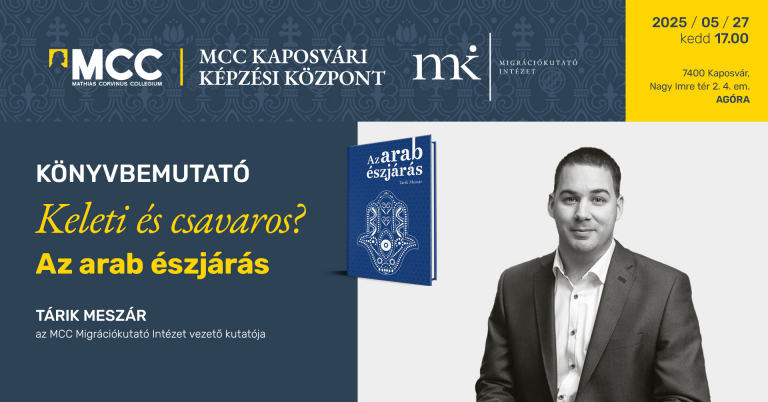Their choices have broader strategic relevance too. The EU integration of the Western Balkans – a region burdened with historical grievances – has security, economic and political significance for both Central and South-East Europe and for the EU in general. The political and economic stability of the neighbourhood depends largely on the vision and opportunities that international institutions, alliances and major powers in the region offer.
The one-day conference aims to provide an overview of how new energy diversification efforts, and the planning of new supply routes affect Central and South-East Europe, what new international cooperations are being outlined, and to what extent these will foster further the integration and closer cooperation in this region. The conference will explore the prospects of the region in four thematic panels and report on the opportunities of the area in the light of the new global and regional challenges. A separate panel will address the challenges related to the implementation of the European Green Deal and the clean energy transition, and the prospective role of different technologies and solutions in the region. Another panel will also shed light on the socio-economic and environmental impacts of the different energy strategies.
The ‘Energy Forum 2025: Shaping a Secure and Sustainable Energetic Future in Central and South-East Europe’ will bring together representatives of governments and state agencies, energy companies as well as experts and researchers from the countries of Central and South-East Europe to share their ideas on these very important issues that will largely influence the future of energy security and development in the region in the future.
Agenda
- Registration and arrival of guests (8:30-9:00)
- Welcome remarks (9:00-9:20)
Erik Molnár - General Director
Gnosis Institute
Dr. Mónika Besenyei - Director
Climate Policy Institute
- Going green while baby drills (9:20 – 11:00)
“Drill, baby drill” – Trump said, promising to re-strengthen the role of fossil energy resources and to cut energy prices. Meanwhile the EU is still facing the multi-faceted challenges to go green, provide affordable energy supply and to increase its competitiveness in the shadow of the war in Ukraine.
Keynote speech:
András Jenei - Deputy Director
Centre for Fair Political Analysis
Panel discussion:
Attila Steiner - State Secretary for Energy
Ministry of Technology and Industry, Hungary
Georgy Samandov - Deputy Energy Minister of Bulgaria
Tina Seršen - State Secretary of Energy
Ministry of the Environment, Climate and Energy of Slovenia
Leonita Shabani-Mullarama - Secretary General
Ministry of Economy of Kosovo
Moderated by
Erik Molnár - General Director
Gnosis Institute
- Coffee break (11:00-11:20)
- Helping hands of your neighbour (11:20-13:00)
Building regional connectivity in energy supply chains and trade is essential to create functional networks and to optimise the use of energy produced. Cross-border cooperation and strengthening good neighbourly relations in energy policy can contribute to inter-state trust and mutually benefit the countries in concerns. Companies and regulatory authorities implementing such cooperations are key to ensure their operation ability.
Keynote speech:
Szabolcs I. Ferencz - Chairman of the Board & CEO
FGSZ Ltd.
Panel discussion:
Pál Ságvári - Vice President
Hungarian Energy and Public Utility Regulatory Authority
Zbyněk Boldiš - President of the Assembly (ČEPS a.s.)
European Network of Transmission System Operators for Electricity
Slovak representative from energy company or regulatory authority (tba)
Moderated by
Dr. Ottó ToldiSenior ResearcherClimate Policy Institute
- Lunch break (13:00-14:00)
- Sustainable and realistic: the future of green transformation (14:00-15:40)
While there is still a debate on that how realistic it is to create a more environmentally sustainable energy system, technological development contributes to the emergence of new energy resources which along with modernisation of “old solutions” are providing increasing number of competitive and complementary solutions to combat this complex challenge.
Keynote speech:
Dalibor Arbutina - Acting Director
Nuclear Facilities of Serbia
Panel discussion:
Pál Kovács - Head of Cabinet and Director of CEO’s Cabinet
MVM Paks Nuclear Power Plant Ltd.
Dr. Csaba Novák - Founder and President
Hungarian Renewable Energy Resources
Ivan Fugaš - Managing Director
LNG Hrvatska
Moderated by
Árpád Párducz - International Analyst
Institute of Energy Strategy
- Coffee break (15:40-16:00)
- Energy strategies and their socio-economic impacts (16:00-17:40)
While there is no one-size-fits-all solution, evaluation of energy strategies cannot be complete without the consideration of social, economic and environmental impacts. Although some of these aspects are hard to be numerated but definitely, they shall be part of the analysis of costs and benefits accompanying certain strategic choices.
Keynote speech:
Rusif Huseynov- Director
Topchubashov Center, Azerbaijan
Panel discussion:
Dr. Ottó Toldi - Senior Researcher
Climate Policy Institute, Hungary
Maciej Jakubik - European Programme Coordinator
Forum Energii, Poland
Agron Demi - Director
Atlas Institute, Kosovo
Monika Vana - Professor
Faculty for Economic Science, University of Vienna
Moderated by
Anna Orosz - Head of Research
Gnosis Institute
- Closing remarks by the organisers (17:40-17:45)


